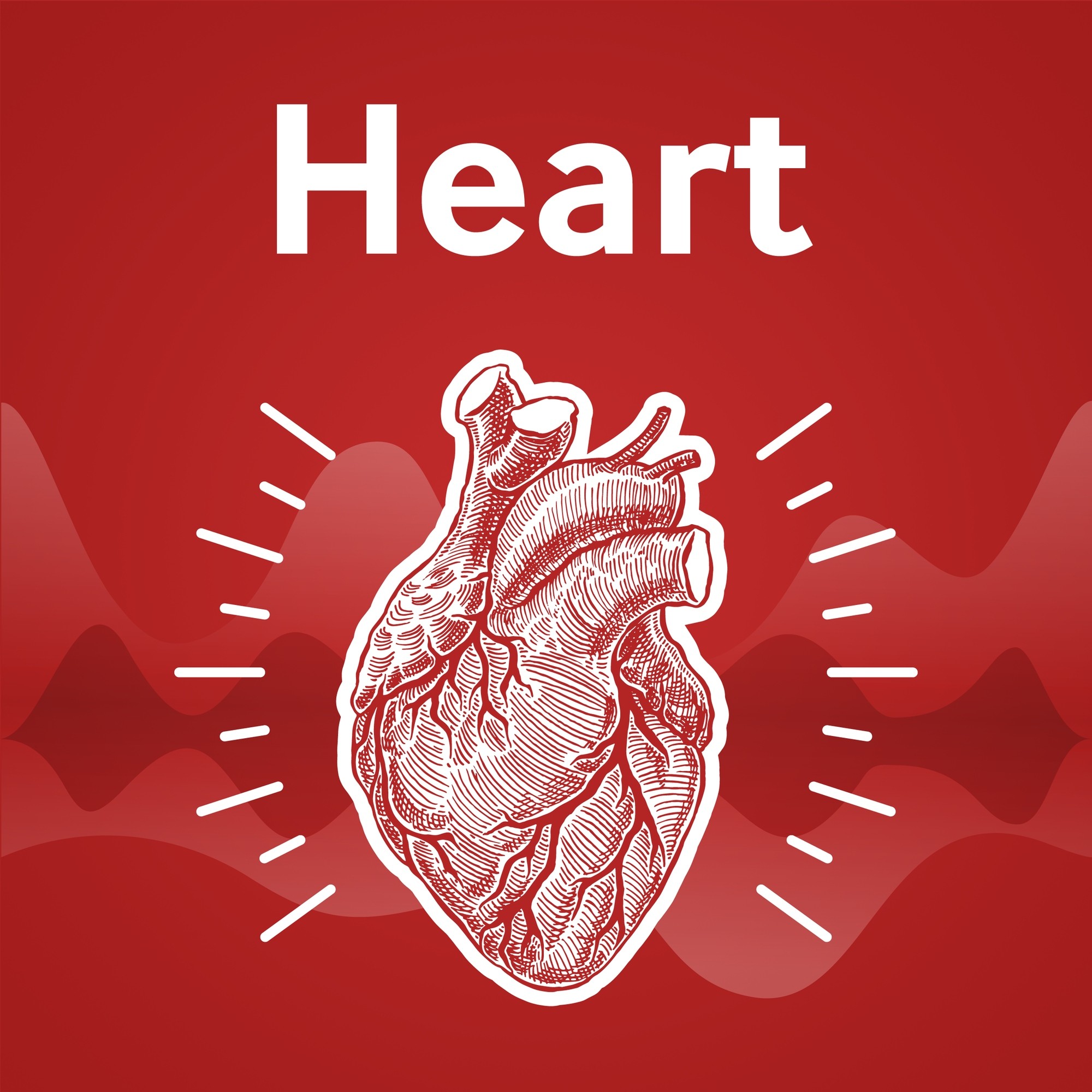

Heart Podcast
BMJ Group
The Heart Podcast is your go-to source for the latest insights and developments in cardiovascular medicine. Each episode features in-depth interviews with renowned authors and leading experts in the field, delving into the latest advances in cardiovascular research and treatments.Heart - heart.bmj.com - is a renowned international journal from the BMJ Group and the British Cardiovascular Society (BCS) dedicated to publishing research and reviews on cardiovascular disease. Stay ahead in your field by tuning into our expert discussions and accessing cutting-edge information.Subscribe now or listen on your favourite podcast platform to elevate your understanding of cardiovascular medicine. The Heart podcast is published twice a month, every other Tuesday.Podcast hosted by:Professor James Rudd, Professor of Cardiovascular Medicine and Consultant Cardiologist, University of Cambridge and Addenbrooke's Hospital, Cambridge.
Episodes
Mentioned books

Oct 22, 2024 • 23min
Virtual FFR and the VIRTU 4 study
Paul Morris is a senior clinical lecturer and interventional cardiologist, while Hazel Haley is a consultant interventional cardiologist, both hailing from Sheffield. They delve into the innovative world of virtual fractional flow reserve (VFFR) and its clinical implications. Insights from their VIRTU-4 study reveal how VFFR impacts patient management in coronary syndromes, shifting strategies towards enhanced therapies and PCI. They also discuss the limitations of VFFR and the importance of ongoing research in advancing non-invasive assessment tools in cardiology.

Oct 8, 2024 • 18min
Health, burnout and well-being of UK cardiology trainees
Oliver Brown, a cardiology trainee from Leeds, discusses the alarming health trends among UK cardiology trainees. He shares insights from a survey revealing high levels of burnout, anxiety, and depression within the field. The conversation emphasizes the importance of mental health support and community resources. Brown also discusses the evolving training structure and its impact on trainee well-being, advocating for necessary changes to improve their overall health. It's a candid look at the rigorous demands faced by those in cardiology.

Sep 24, 2024 • 20min
Diagnosis and management of resistant hypertension
Dr. Miguel Camafort, a specialist in resistant hypertension from Barcelona, shares his expertise on tackling this challenging condition. He emphasizes the differences in diagnosis and management standards between American and European practices. The conversation dives into the importance of patient adherence and lifestyle changes as essential components of effective treatment. Dr. Camafort also discusses innovative therapies, including renal denervation, and highlights new drug developments that could shape future management strategies.

Sep 10, 2024 • 18min
Pre-conception counselling in women with heart disease - we need to do better
Maggie Simpson, a researcher from Glasgow, dives into her groundbreaking study on pre-conception counselling for women with heart disease. She reveals that only 10% of these women receive essential guidance, exposing alarming gaps in care. The discussion highlights critical maternal mortality rates and the need for better communication from healthcare providers. Simpson advocates for improved resources and guidelines, emphasizing that proactive counseling can significantly enhance outcomes for both mothers and children. The conversation sheds light on the importance of prioritizing heart health in family planning.

Aug 27, 2024 • 17min
What are the predictors of Fabry’s disease progression despite enzyme therapy?
Dr. Niccolo Maurizi, a Fabry's disease researcher from Lausanne, Switzerland, discusses key insights on this rare condition. He highlights the complexities of Fabry's disease and its systemic effects, particularly on heart health. The conversation dives into enzyme therapy, differentiating classical and late-onset forms, and the vital role of early intervention in halting progression. Maurizi emphasizes findings from a Swiss registry study, showcasing how timely therapy can prevent severe cardiac issues like left ventricular hypertrophy.

Aug 13, 2024 • 17min
Prognosis after chest pain and an ED visit - a troponin story
Dr. Love Cyon, a Stockholm-based researcher, dives into the prognostic power of troponin levels in patients with chest pain visiting emergency departments. He discusses a pivotal study revealing that low troponin levels correlate with better long-term outcomes. Interestingly, younger patients show a paradox where their prognosis is less favorable, prompting further investigation. The talk emphasizes the role of troponin in reassuring clinical decisions and the importance of understanding emergency department visits in the context of potential myocardial infarctions.

Jul 30, 2024 • 17min
Should we report incidental aortic calcification on chest CT imaging?
In this discussion, Professor Marc Dweck, a cardiovascular expert from The University of Edinburgh, dives into the significance of incidental aortic calcification found in chest CT scans. The conversation highlights how these findings can refine cardiovascular risk assessments and the need for integrating them into clinical guidelines. They also explore advancements in imaging techniques, the correlation between aortic calcification and cardiovascular events, and the role of AI in identifying these incidental findings. A vital listen for those interested in heart health!

Jul 16, 2024 • 19min
Polypill for cardiovascular disease prevention
Dr. Milad Nazarzadeh from the University of Oxford discusses using a polypill for cardiovascular disease prevention. They explore the benefits, significance of the Polypars Trial in Iran, global polypill trials, and the advantages of a polypill for prevention, emphasizing cost-effectiveness, favorable side effects, and increased adherence.

Jul 2, 2024 • 14min
Sarcopenia and aortic valve disease
Prof Abdulla Damluji from Johns Hopkins University discusses sarcopenia and aortic valve disease with valuable insights on the correlation, impact on TAVR patients, combating sarcopenia in elderly individuals, and future research directions for enhanced outcomes.

Jun 18, 2024 • 21min
Stroke protection in TAVI - what does the evidence say?
Dr Piter Vriesendorp and Dr Sam Heuts discuss the effectiveness of cerebral protection devices in TAVI procedures. They review randomized trials, emphasize the collaboration between cardiologists and surgeons, and analyze the impact of stroke protection devices on elderly patients. The guests also explore Bayesian meta-analysis, minimal clinically important difference in treatment benefits, and express gratitude for the insightful discussion.


